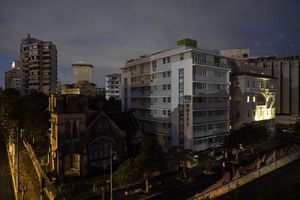In a bold move that is sending shockwaves through the global trade landscape, the White House has imposed steep tariff hikes on imports from both Bangladesh and South Korea, two countries heavily reliant on exports. These tariffs, which could rise to as much as 37 percent for Bangladeshi goods and 25 percent for South Korean imports, are poised to disrupt key sectors in both nations, raising concerns about economic stability and job security.
The tariffs on Bangladeshi goods, particularly in the garment and pharmaceutical sectors, have raised alarms among industry leaders. Bangladesh, which exports approximately USD 8.4 billion worth of garments to the United States annually, has long been a leading supplier to the U.S. fashion market. The proposed increase from previous tariffs of 15 to 32 percent to a staggering 37 percent represents a significant blow to an economy that employs over four million workers in the garment industry, many of whom are women.
According to industry insiders in Dhaka, the new tariffs could force factories to shut down and lead to mass layoffs. "The new tariffs could force factories to close and workers to be laid off en masse," they warned. The economic implications are dire, as overseas buyers are already shifting orders to countries like India and Pakistan, where tariffs are lower. This shift not only jeopardizes jobs but threatens the very fabric of Bangladesh's export-driven economy.
Meanwhile, in South Korea, the situation is equally precarious. Starting April 9, 2025, President Trump’s administration has enacted a 25 percent tariff on imports from South Korea, affecting a variety of products, notably food items. Among the most impacted is ramyeon, the beloved Korean instant noodle that has enjoyed a surge in popularity among American consumers. Korean food exports have skyrocketed from $3.51 billion in 2015 to $7.02 billion in 2024, with ramyeon accounting for a significant $1.36 billion in sales.
Despite the protections previously afforded under the U.S.-Korea Free Trade Agreement, the new tariffs threaten to squeeze profit margins and drive up prices for Korean food products. Samyang Foods, the maker of the popular Buldak ramyeon, faces a particularly challenging situation as it lacks a U.S. factory to absorb the shock of the tariffs. The company, which posted record overseas sales of 1.33 trillion won ($908 million) last year, is now scrambling to adapt. CEO Kim Dong-chan stated, "We’re taking a multifaceted approach in a broad sense such as diversifying into other regional markets or improving cost structures."
Other manufacturers like Nongshim and CJ CheilJedang, however, may be better positioned to weather the storm due to their established production facilities in the U.S. Nongshim has been operating a U.S. subsidiary since 1994 and runs two American plants, while CJ CheilJedang operates 20 manufacturing facilities across the country. These companies are likely to mitigate the impact of the tariffs better than those without local manufacturing capabilities.
The political backdrop to these tariff hikes adds another layer of complexity. In Bangladesh, the resignation of former Prime Minister Sheikh Hasina in 2024 amid widespread protests has led to the appointment of Nobel Laureate Muhammad Yunus as the leader of an interim government. This government is now tasked with restoring political credibility while navigating the treacherous waters of international trade relations. Despite initial hopes that this change might improve U.S.-Bangladesh relations, the imposition of tariffs suggests a prioritization of transactional trade interests over diplomatic goodwill.
As the Yunus government negotiates with the Office of the U.S. Trade Representative and reviews its own tariffs on American imports, the urgency of the situation cannot be overstated. The National Board of Revenue in Bangladesh is considering cuts to its own tariffs as a gesture of good faith, but such measures may take time to implement. The immediate effects of the tariffs are already being felt, with factory owners threatening closures and laborers facing increasing insecurity.
In South Korea, the food industry is bracing for uncertainty. Industry insiders predict that even established brands will struggle under the weight of a 25 percent tariff. "Even companies with strong branding and demand will struggle to withstand a 25 percent tariff," one official noted, highlighting the potential for price hikes in the global market. The long-term implications of these tariffs could reshape the landscape of international trade, particularly for developing countries that have relied on low-cost manufacturing.
As both Bangladesh and South Korea grapple with these challenges, the broader questions about the future of globalization loom large. The U.S. tariffs represent a significant shift towards protectionism, raising concerns about the sustainability of global supply chains and the economic viability of nations heavily dependent on exports. For Bangladesh, this crisis is not merely a policy issue; it is a question of national survival.
Ultimately, how effectively these countries respond to the new trade landscape will determine their economic futures. Bangladesh's efforts to diversify exports and engage with other markets like the EU, Canada, and Japan are critical, but the clock is ticking. For South Korea, food manufacturers must adapt quickly to mitigate the negative impacts of the tariffs, or risk losing their foothold in the lucrative American market.
As the world watches, the unfolding trade dynamics between the U.S., Bangladesh, and South Korea will undoubtedly shape the future of international commerce, with ramifications that extend far beyond borders.




